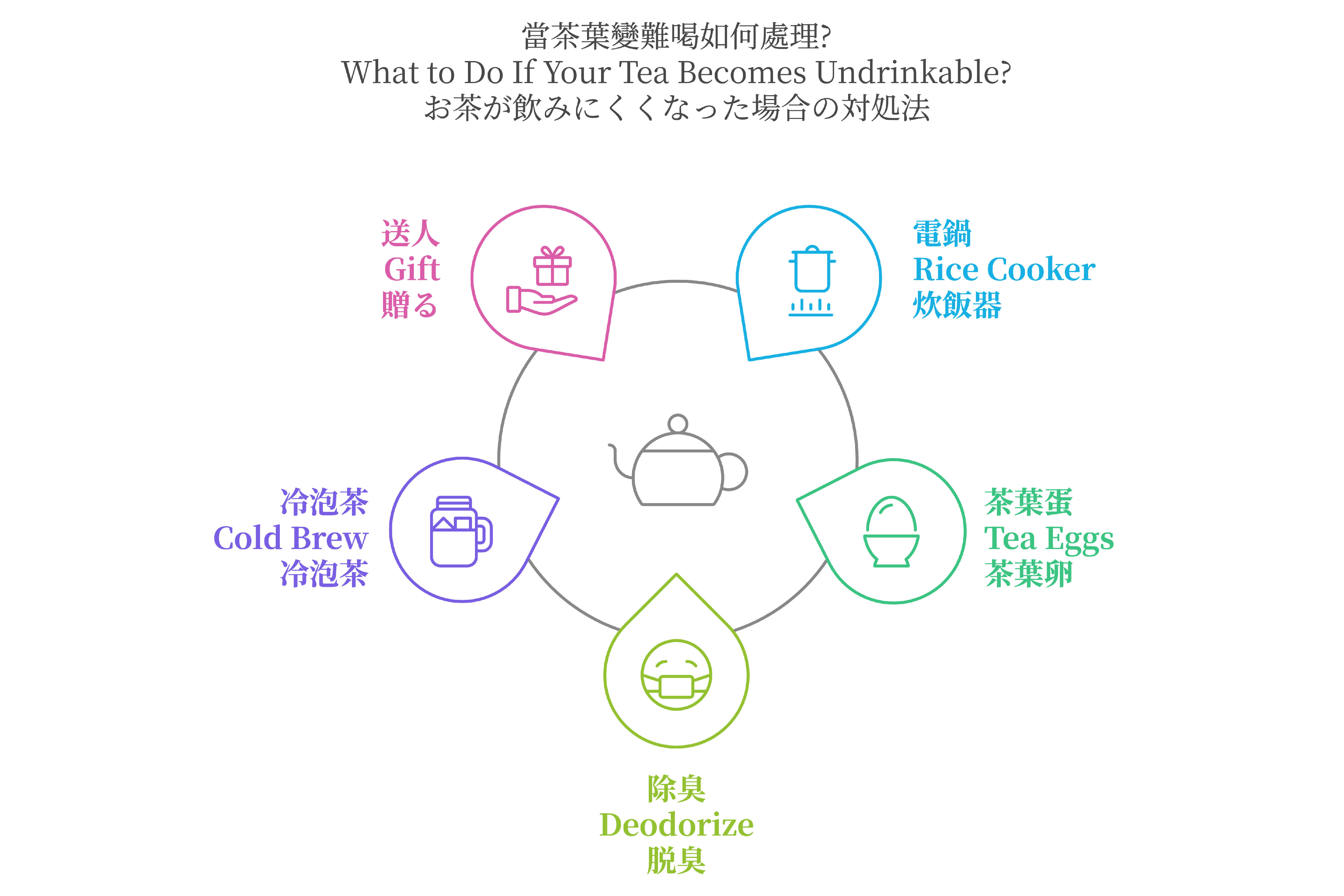Hi, everyone:
I’m Andy, a tea enthusiast.
Today, I’d like to share some tips on what to do if you accidentally buy tea that doesn’t taste good.
➤ What is "bad-tasting" tea?
The taste of tea is a subjective judgment; everyone has different preferences.
For instance, the minty flavor of Ruby Red Tea or the ginger flower aroma of Four Seasons Spring Tea may be loved by some but disliked by others.
If you personally dislike it, it’s considered “bad-tasting tea” for you.
There’s also another category: “tea that isn’t suitable for you.”
Sometimes tea just sits on your shelf untouched for a long time, even though it isn’t actually bad-tasting.
This would fall under the “not suitable for you” category.
➤ What is "bad-tasting" tea?How is bad-tasting tea produced?
Tea that tastes bitter, astringent, salty, or foul is what I consider “absolutely bad-tasting tea.”
This can occur due to:
• Improper use of fertilizers during tea cultivation, such as overuse of certain elements that create a salty taste.
• Mistakes in tea processing, like under-frying or excessive rolling.
➤ What is "bad-tasting" tea?Can tea you bring home turn bad-tasting?
Yes, it can.
Tea easily absorbs odors and can degrade in flavor due to humidity, light, oxidation, or high temperatures.
Here are some tips to prevent such deterioration:
• Consume your tea as quickly as possible.
• Choose tea with sufficient fermentation levels.
• Store tea in opaque, airtight containers.
• Avoid storing tea in the refrigerator unless it’s green tea.
• Seal tea bags tightly with clips and store them in your tea-making area.
Additionally, using water with the right hardness is crucial for brewing good tea.
Avoid using premium mineral water, purified water, or distilled water. Water with a TDS between 60–120 ppm is best for brewing tea.
➤ What is "bad-tasting" tea?What to do if your tea becomes bad-tasting?
These methods are only applicable to pure tea leaves, not flavored teas:
• Use a rice cooker to lightly roast the tea. Stop once a nutty aroma develops.
• Use the tea to make tea eggs.
• Use it for deodorizing, similar to how coffee grounds are used.
• Make cold brew tea.
• Gift it to a friend who enjoys its flavor.

I hope these tips are helpful.
See you next time!
#yoshantea #taiwantea #oolongtea #dongdingtea #teafacotry #FSSC22000 #safetea #howtobrewingtea #teatips #teaknowledge
